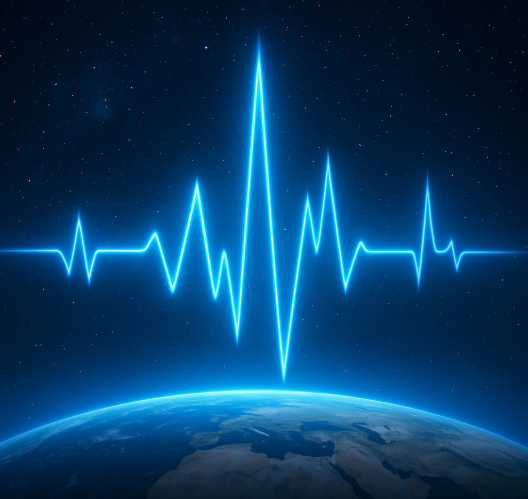We Come Together As One
Featured
- Get link
- X
- Other Apps
Where Did the Time Go? The Quiet Truth About How We’re Losing Time
We keep saying it, don't we?
"Time’s speeding up."
"The days just fly by."
"Wasn’t it just January, like, five minutes ago?"
We laugh it off, chalk it up to aging, burnout, or too many notifications. But what if—and hear me here—what if there’s actually something to it?
Not just a spiritual sensation. Not just the chaos of modern life. But actual, measurable, scientific shifts in how time flows around us?
Let’s start with the basics.
The Earth Is Spinning Faster—Literally
In 2020, scientists recorded the shortest day ever since we started keeping track with atomic clocks. Earth completed a full rotation in 1.4602 milliseconds less than the usual 24 hours. It didn’t stop there—more than two dozen other days in that year broke similar records.
So yes, the Earth is spinning faster. That means our days are technically getting shorter.
Now, we’re not losing hours or anything dramatic. Not yet. But milliseconds? Those are real. Measured. Accumulating. We are literally losing time—not just figuratively, not just emotionally, but physically.
And here's the part no one really talks about: climate change might be helping that along.
Climate Change: The Hidden Thief of Time?
Melting glaciers and polar ice caps are shifting the planet’s weight. When mass redistributes like that—from the poles to the equator—it changes how Earth spins. Think of a figure skater: when they pull their arms in close, they spin faster. Same physics here. As mass moves outward, Earth gains a little rotational speed.
So yeah, your recycled yogurt container might not seem like it matters much—but on a planetary scale? These environmental changes might be nudging the spin, millisecond by millisecond.
We talk a lot about climate change in terms of rising oceans, dying ecosystems, and heatwaves. But how often do we think about how it’s quietly reshaping time itself?
Is Time Actually Speeding Up?
This is where it gets weird—and where science and soul start dancing around each other.
Time isn’t “speeding up” in the universal sense. Atomic clocks still tick at their normal, hyper-precise rate. But how we experience time is absolutely shifting. In physics, there’s something called time dilation—a phenomenon where time actually slows down when you’re near strong gravity or moving really fast.
They’ve tested this by putting atomic clocks on airplanes and satellites. The clocks tick differently—slightly faster in orbit where gravity is weaker, slightly slower on Earth where gravity is stronger. So depending on your location, time flows at different speeds.
Now imagine this: gravity keeps us rooted in time. It slows things down. It holds our bodies in place, and in a way, maybe our consciousness too.
But when gravity weakens—like far from Earth, or maybe… when we die?—what happens then?
Beyond the Body: Consciousness and Timelessness
This is where your late-night thoughts start turning into philosophy. If time slows down when gravity is stronger, and speeds up when it’s weaker—what happens when there’s no body left to hold you down?
Many people who’ve had near-death experiences describe something fascinating: time doesn’t feel linear anymore. Moments blur. Some say they experienced their entire lives all at once. Others say they were “everywhere at once.”
It makes you wonder: what if consciousness, unbound by the body and gravity, exists outside of time? Maybe this sensation that time is accelerating is part of a deeper, cosmic shift—something we can feel, even if we can’t fully explain.
So Are We Losing Time?
Yes. And no.
Time, as measured by clocks, still ticks on.
But Earth’s rotation is getting faster.
And our days are technically getting shorter.
It’s not enough to break your calendar. But it is enough to make you pause.
Because if climate change can alter how fast the planet spins…
And if gravity can bend how time flows…
And if we can feel time slipping away…
Then maybe it’s not just about schedules and clocks anymore.
Maybe the most powerful thing we can do right now…
is to slow down ourselves.
To remember that time isn’t just something we lose.
It’s something we live.
And if we don’t protect this planet—this home that holds our rhythm—
then maybe, just maybe, it’s not just nature we’re burning out.
Maybe… it’s time itself.
“Girl, you’re doin’ just fine.” 💫
- Get link
- X
- Other Apps
Popular Posts
The Earth's Pulse: How Schumann Resonance Spikes May Be Affecting Us
- Get link
- X
- Other Apps



Comments
Post a Comment